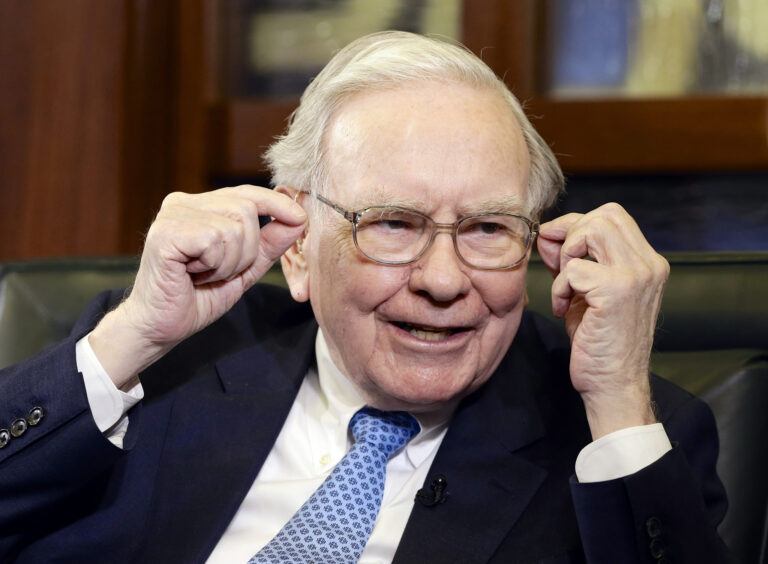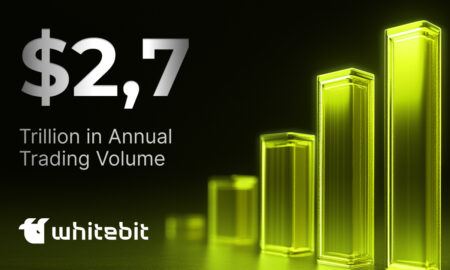Warren Buffett, an American business tycoon and one of the most successful investors in modern history – with a net worth of approximately $90 billion, has argued that Bitcoin (BTC), the flagship cryptocurrency, is a “gambling device.”
Buffett, who has previously compared cryptocurrencies to “rat poison,” recently told reporters (prior to attending Berkshire Hathaway’s annual meeting): “There’s been a lot of fraud connected with [Bitcoin]; there have been disappearances. So there has been a lot lost on it. The bitcoins haven’t produced anything.”
Bitcoin “Just Sits There”
Buffett, who’s a notable philanthropist as he’s reportedly pledged 99% of his wealth to charity, mainly through the Bill & Melinda Gates Foundation, thinks that Bitcoin “doesn’t do anything.” He claims the world’s most dominant cryptocurrency “just sits there.” Moreover, the prominent speaker compared Bitcoin to a seashell which has no meaningful purpose.
Buffett also noted he doesn’t consider Bitcoin to be an investment. He remarked: “I’ll tear off a button here. What I’ll have here is a little token…I’ll offer it to you for $1,000, and I’ll see if I can get the price up to $2,000 by the end of the day… But the button has one use and it’s a very limited use.”
Bigger Question Is If You Can Do Payments On Top Of Bitcoin, A “Gambling Device”
In response to Buffett’s comments, Twitter user JP Koning (jpkoning) acknowledged that Buffett was right in saying that Bitcoin is used frequently to engage in speculative trading or gambling. However, Koning, an economist and active blogger, mentioned that “the bigger question is whether you can build a payments system on top of a gambling device.”
Buffett is right, bitcoin is a gambling device: https://t.co/iB90w1Qu64
But the bigger question is whether you can build a payments system on top of a gambling device. And whether that payments system will be used by everyone, or just hobbyists and outsiders.
— JP Koning (@jp_koning) May 5, 2019
Koning, who writes frequently about stablecoins and various other topics related to tokenomics, questioned whether the developers of the Bitcoin protocol will be able build a payments system that “will be used by everyone, or just hobbyists and outsiders.”
Koning further noted:
The features that make bitcoin such a popular gamble interfere with its functionality as a payments system. Only die-hard fans or folks who lack access to regular money will ever be willing to ignore this awkwardness [and] use it for payments.
Responding to Koning and Buffett’s statements, Arthur Breitman, the Chief Technology Officer at Dynamic Ledger Solutions, a company that’s focused on the ongoing development of Tezos, asked:
How many stores of values do you know that don’t represent anyone’s obligation towards you, that can be self-custodied and moved around easily?
Bitcoin Is “Gold 2.0”
Meanwhile, Vijay Boyapati, a former Google engineer and widely-followed commentator on Bitcoin, remarked:
Bitcoin is not PayPal 2.0, it’s Gold 2.0. Not unsurprisingly Buffett has a poor history of understanding gold’s value proposition.
Notably, Buffett’s most recent criticism of Bitcoin as an ineffective medium of exchange (MoE) or store of value (SoV) has come right after Grayscale Investments, a subsidiary of the Digital Currency Group,launched a campaign called #DropGold. Grayscale’s campaign has been aggressively promoting Bitcoin as a better form of investment. Meanwhile, Grayscale’s management claims it’s time to move away from the gold bullion as a form of investment because “it just sits there.”
Today we unveiled our #DropGold TV commercial. We think it’s a #MustWatch
sound ON! pic.twitter.com/SEGAmMItsE
— Grayscale (@GrayscaleInvest) May 1, 2019
In response to Grayscale’s campaign, the World Gold Council published a blog post in which it argued that Bitcoin is too volatile and it may not be considered an effective replacement for gold, which is a time-tested and established asset.









